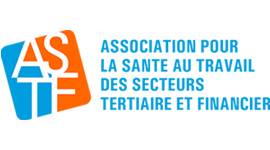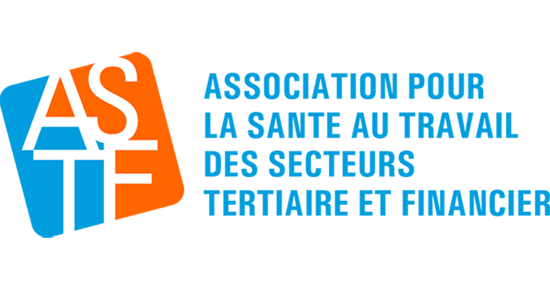We all know that feeling: the workday is over, vacation begins, and yet our mind keeps spinning in circles. That presentation that needs to be ready when we return, that file left hanging, that notification blinking on our phone… Despite our efforts, the brain seems unable to switch off. This difficulty in disconnecting isn’t a failure of willpower, but a complex neurobiological phenomenon that science is now helping us better understand.
The stakes go beyond mere personal inconvenience: the inability to recover mentally directly impacts our health, creativity, and professional performance. Understanding the mechanisms underlying this difficulty allows us to develop effective strategies to finally make the most of our rest periods.
Obstacles to disconnecting: when the brain refuses to “shut down”
Professional ruminations are the primary obstacle to effective disconnection. Our brain, excellent at solving problems, continues to “work” on unfinished tasks, creating what psychologists call “cognitive loops.” These recurring thoughts monopolize our attentional resources and keep our nervous system on high alert.
Professional FOMO syndrome (Fear of Missing Out) amplifies the phenomenon. The fear of missing important information, an urgent email, or a critical decision keeps us in a state of constant vigilance. This hypervigilance exhausts our mental reserves and prevents the activation of recovery processes.
Residual mental load further complicates the situation. Professional responsibilities continue to occupy our mental space, creating a dull but persistent pressure. This psychological tension prevents our organism from shifting into its natural recovery modes.
Finally, digital omnipresence constitutes a major obstacle. Permanent connectivity blurs the boundaries between work time and personal time, making the psychological transition to rest increasingly difficult. Each notification reactivates our state of vigilance, interrupting the disconnection processes.
What science says: why does our brain need real holiday?
The default mode network: background recovery.
Recently discovered by neuroscience, the Default Mode Network activates when we are not focused on a specific task. This neural network, comparable to a maintenance program running in the background on a computer, is essential for mental recovery. It processes information from the day, consolidates memories, and restores our cognitive abilities.
When we are unable to disconnect, this network cannot fully activate. As a result, our brain doesn’t benefit from the regeneration processes necessary for its proper functioning. It is like preventing a computer from entering sleep mode: it ends up overheating and slowing down.
Neuroplasticity and memory consolidation
Mental rest activates neuroplasticity mechanisms, this capacity of the brain to reorganize and create new connections. During disconnection periods, our brain “sorts” information, consolidates important learning and eliminates superfluous data.
This memory consolidation happens mainly during sleep and wakeful rest moments. Without real breaks, our learning and memorization capacity gradually deteriorates, directly impacting our professional efficiency.
The dopaminergic system: restoring motivation
Dopamine, the neurotransmitter of motivation and pleasure, follows natural cycles. Chronic exposure to stress and professional stimulation can exhaust this system, leading to decreased motivation and engagement.
Authentic rest allows the restoration of the dopaminergic system. This is why we often return from vacation with new ideas and renewed motivation: our brain has been able to “recharge its chemical batteries”.
Physiological impact: cortisol and inflammation
Chronic stress maintains elevated levels of cortisol, the stress hormone. This prolonged activation triggers inflammatory processes that impact not only our mental well-being, but also our physical health.
Real holidays allow for a significant decrease in cortisol and inflammatory markers. This physiological recovery is essential to maintain our overall balance and prevent professional burnout.
Transition rituals: how to optimize your disconnection
“Cognitive closure” techniques
The “closure review” technique involves taking stock of the day or work period before going on vacation. Writing down completed tasks, those to resume, and important points helps the brain to “file” information and accept the break.
The “mental dump” exercise involves writing down all professional concerns on paper. This externalization allows us to remove these thoughts from our working memory and reduce their cognitive impact.
Work-holiday transition rituals
The “symbolic closure” ritual can include concrete actions: tidying your desk, intentionally turning off the computer, changing clothes. These simple actions signal the context change to our brain.
The “decompression period” involves allowing oneself 24 to 48 hours of transition before truly beginning your holiday. This period allows the nervous system to gradually adapt to the new rhythm.
Progressive disconnection strategies
The “3 zones” rule: define spaces/times without professional technology (bedroom, mealtimes, first hour of the day). This progressive approach is more sustainable than abrupt total disconnection.
The “limited check” technique: if total disconnection is impossible, define a single moment in the day (15 minutes maximum) to check messages, then close everything.
Practical advice for managers and employees
For managers: lead by example by respecting your own disconnection times, avoid sending emails outside working hours, and communicate clearly about real emergencies versus false emergencies.
For employees: conscientiously prepare your departure (file handovers, clear absence message), install applications to limit the use of professional tools, and cultivate activities “incompatible” with work (sports, nature, reading).
Conclusion
The ability to disconnect is not a luxury, but a neurobiological necessity. Understanding the brain mechanisms that underlie our need for rest allows us to develop effective strategies to fully benefit from it.
Investment in true disconnection pays off: enhanced creativity, restored motivation, preserved health. During this summer period, let’s give our brain what it truly needs to allow us to return in September more efficient and fulfilled.
Enjoy your holidays… and disconnect!



